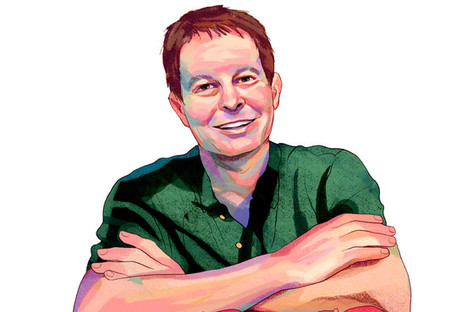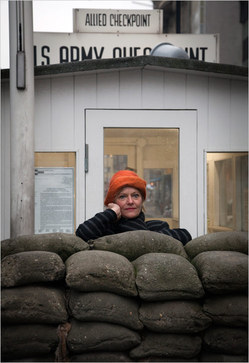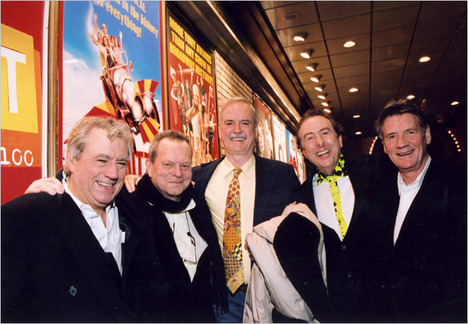 Whole Foods CEO John Mackey. Source of the caricature: online version of the WSJ interview quoted and cited below.
Whole Foods CEO John Mackey. Source of the caricature: online version of the WSJ interview quoted and cited below.
(p. A11) “I honestly don’t know why the article became such a lightning rod,” says John Mackey, CEO and founder of Whole Foods Market Inc., as he tries to explain the firestorm caused by his August op-ed on these pages opposing government-run health care.
. . .
. . . his now famous op-ed incited a boycott of Whole Foods by some of his left-wing customers. His piece advised that “the last thing our country needs is a massive new health-care entitlement that will create hundreds of billions of dollars of new unfunded deficits and move us closer to a complete government takeover of our health-care system.” Free-market groups retaliated with a “buy-cott,” encouraging people to purchase more groceries at Whole Foods.
. . .
What Mr. Mackey is proposing is more or less what he has already implemented at his company–a plan that would allow more health savings accounts (HSAs), more low-premium, high-deductible plans, more incentives for wellness, and medical malpractice reform. None of these initiatives are in any of the Democratic bills winding their way through Congress. In fact, the Democrats want to kill HSAs and high-deductible plans and mandate coverage options that would inflate health insurance costs.
. . .
Mr. Mackey’s latest crusade involves traveling to college campuses across the country, trying to persuade young people that business, profits and capitalism aren’t forces of evil. He calls his concept “conscious capitalism.”
What is that? “It means that business has the potential to have a deeper purpose. I mean, Whole Foods has a deeper purpose,” he says, now sounding very much like a philosopher. “Most of the companies I most admire in the world I think have a deeper purpose.” He continues, “I’ve met a lot of successful entrepreneurs. They all started their businesses not to maximize shareholder value or money but because they were pursuing a dream.”
Mr. Mackey tells me he is trying to save capitalism: “I think that business has a noble purpose. It’s not that there’s anything wrong with making money. It’s one of the important things that business contributes to society. But it’s not the sole reason that businesses exist.”
What does he mean by a “noble purpose”? “It means that just like every other profession, business serves society. They produce goods and services that make people’s lives better. Doctors heal the sick. Teachers educate people. Architects design buildings. Lawyers promote justice. Whole Foods puts food on people’s tables and we improve people’s health.”
Then he adds: “And we provide jobs. And we provide capital through profits that spur improvements in the world.
. . .
“I don’t think anybody’s too big to fail,” he says. “If a business fails, what happens is, there are still assets, and those assets get reorganized. Either new management comes in or it’s sold off to another business or it’s bid on and the good assets are retained and the bad assets are eliminated. I believe in the dynamic creativity of capitalism, and it’s self-correcting, if you just allow it to self-correct.”
That’s something Washington won’t let happen these days, which helps explain why Mr. Mackey felt compelled to write that the Whole Foods health-insurance program is smarter and cheaper than the latest government proposals.
For the full interview, see:
STEPHEN MOORE. “The Conscience of a Capitalist; The Whole Foods founder talks about his Journal health-care op-ed that spawned a boycott, how he deals with unions, and why he thinks CEOs are overpaid.” The Wall Street Journal (Sat., OCTOBER 3, 2009): A11.
(Note: ellipses added.)







